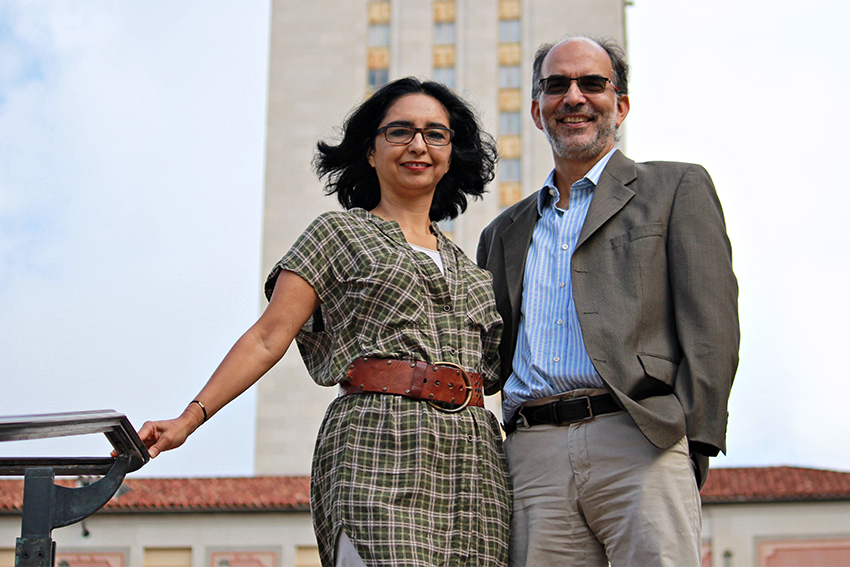Paloma Diaz and Raul Madrid were born countries apart, but it only took one Brazilian carnival in Bahia to bring them together.
“Sometimes you just know,” Madrid said. “I remember in Rio when we were together with my friend Mike from the Peace Corps, I turned to Mike and said, ‘Maybe I should bring this one back with me to the United States.’ It was a joke but … it wasn’t really a joke.”
Today, Latin American studies program director Paloma Diaz and government and Mexican American studies professor Raul Madrid have settled down in Austin with their family. But the memories of their backpacking days live on in the story of how they met.
Madrid had been traveling with the Peace Corps, and his only long-term plan was to finish his tour of South America and return to the U.S. for graduate school. However, when he walked through Diaz’s open door in a small backpacker hotel in Brazil one day, everything changed.
Neither of them were Brazilian and after realizing they were both visiting the country, they got lost in conversation in Spanish. Afterwards, they spent several days at Carnaval together, but soon parted ways. In hopes of seeing each other again, Diaz drew a vague map on a small piece of paper describing where she would be staying next in Rio.
“I drew the map without names of streets or anything, and he found me three days later in Rio,” Diaz said. “You never expect to find love at Carnaval, but we did from day one.”
Using only a few street names written on the map to guide him, Madrid spent over an hour trying to find Diaz. She had drawn a beach, a mountain and a juice store on the map.
“The problem was, in Rio every corner has a juice bar, so it was very hard to track her down,” Madrid said. “I went to those big streets and I started asking around before I found [the place she was staying] and I was fortunate enough that she was there when I got there.”
After spending a few more days together, Madrid said Diaz had to leave once more to go back to work in Santiago, Chile. This time, she left him a more specific address.
“A month later he cut his trip short, showed up at my door in Santiago and we never again separated,” Diaz said.
A few months later they got married in Chile. Madrid said he faced apprehension from his family because, unlike Diaz, they hadn’t met the person their child was marrying.
“They already knew about her, but they were nevertheless surprised when I called to invite them to the wedding,” Madrid said. “They didn’t really know what to expect.”
The difficulties, Madrid said, came later when he had to adjust to a sedentary life in the big city of Santiago, waiting every day for Diaz to come home from work. After they married, Diaz moved to the U.S. with Madrid so he could complete graduate school. Once they got here, it was Diaz who had to adjust to a new life, learning the language and the culture of the U.S.
“She always says the biggest cultural shock was she squirrels,” Madrid said. “She wasn’t used to seeing them running around everywhere.”
In the end they both left with a graduate degree, a job offer and a lasting marriage, which stemmed from love neither of them expected to find at the Carnaval.
“Some of it was her sense of humor. We were both very interested in politics so we had a lot in common, but I wouldn’t say it was any one thing,” Madrid said. “Sometimes you just know.”





















